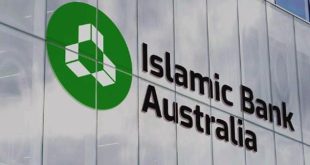© Islamic Finance Today
The purpose of this article is to provide a comparative analysis of the existing Stock Exchange and Shares system proposed by Islamic scholars with its practical aspects. Further, a proposal for stock trading under an Islamic system is also given here
History of Stock Exchange
The Stock market is the place where shares of common stock are bought and sold. The term stock is used to denote an investor’s ownership of a company so that an investor who buys a company’s stock becomes one of the company’s owners or a shareholder. The investors in the stock market range from small individual stock investors to large hedge fund traders. Stock Exchange or bourse is a corporation that provides facilities for the trading of securities and stocks. These are an important way for companies to raise capital for investment and at the same time give an opportunity for investors to share in a company’s profits.
In the early days of the stock exchange, which began as floor exchanges where traders made face-to-face deals, the stock exchange was dominated by scandals and stock crashes. The history of the stock exchange is one that is interesting and at the same time gloomy. Today stock exchanges are highly regulated institutions where the buying and selling of shares is usually done through a stockbroker. This buying and selling of shares is not limited to a certain place where everyone has to gather and buy and sell; today people from all countries buy and sell online with the help of these same stock brokers.
Over the counter markets (OTC) are maintained by regional brokerage houses through telephone or computer networks. In 1602 the Amsterdam Stock Exchange was created thus becoming the first official stock exchange when it traded shares of the Dutch East India Company. By the 1700’s there were fully operational stock exchanges in France and England and America. The largest stock exchanges in the world are New York Stock Exchange (NYSE), American Stock Exchange (AMEX), The London Stock Exchange and the Hong Kong Stock Exchange. The National Association of Securities Dealers (NASDAQ) is the largest U.S. electronic stock market, which records the transactions of about 4000 smaller stock markets.
In order to invest in stock markets one needs to have a thorough knowledge about shares and stocks. Risk management is an area that needs to be mastered, which however is difficult for the average investor. Nonetheless, more and more people are becoming engaged in the buying and selling of stocks with the availability of articles of stock markets on the Internet. 1
How Prices are determined in the Stock Markets
The Major element that moves prices up and down is “Speculation”. Before moving forward it is better to understand what “Speculation” is with reference to financial markets.
Meaning of Speculation
The word ‘speculate’, (fr. Latin speculatus of speculari, to spy out, observe, examine, specula: watchtower, and specere to look, catch sight of) has several meanings.
Speculation: To assume a business risk in hope of gain, especially to buy or sell in expectation of profit from market fluctuations.
The traditional view of speculation
The stock exchange has always primarily been associated with quick profits and rapid growth (Morgan & Thomas 1962), and as this kind of speculation was speculation, not against the “whims of nature”, but against other men, it was not only deemed immoral, but also unproductive (Guillet de Monthoux 1989). This was so especially during the seventeenth and eighteenth century but also during the nineteenth and twentieth century.
Recalling the South Sea Company bubble and scandal in the early eighteenth century Adam Smith severely criticized the business form of joint-stock companies for “lack of enterprise, maladministration and waste” (Morgan and Thomas 1962, p. 42). The stock exchange stood accused of seeking to “shelter convicted defaulters and afford new facilities to the criminal designs of notorious and unprincipled gamblers” (Morgan and Thomas 1962, p. 72). “Playing for money” was believed to come from excessive (as opposed to moderate) human greed and an unhealthy urge for sensational excitement, and the man who spent all his time at the “stock exchange casino” learned nothing about the production of necessary goods but became a “corrupted and unproductive gossipmonger” instead (Keynes, in Guillet de Monthoux 1989). 2
Other elements
Other elements which play a vital role with relation to Speculation are:
1. Bear and Bear Market: An investor who anticipates for a decline in stock prices. A market in which stock prices are declining in general. A serious decline is called a depression. A short decline in a generally rising market is looked upon as a technical correction.
2. Bull and Bull Market: An investor who anticipates for a rise in stock prices. A market in which stock prices are rising in general. If the market is recovering from a deep decline, the early stage of the up trend is called an up reversal, turnaround, rally or recovery.
3. Carry Over trade: Equity repurchases transactions, better known, as “Badla”; are an established form of transactions used in the stock market for temporary financing of trades by speculators and jobbers.
4. Option: The right (but not the obligation) to buy or sell securities at a fixed price within a specified period.
5. Short Sale: It occurs when a person sells shares that he does not own. A short sale is usually made in the hope that a subsequent market decline will enable the seller to ‘cover his position’ at a profit, that is, to buy at a later date and at a lower price the shares he needs to deliver against his original short sale.
STOCK BUSINESS WITH ISLAMIC CONDITIONS
Islamic scholars did not propose the Islamic Stock Exchange, but only recommended a few conditions to purchase or sell the shares in existing share markets which are working under a Capitalistic Monetary System. A brief introduction for conditions imposed by Islamic scholars and their analysis is as follows:
Stock / Share : Securities that represent an ownership interest in a company. If the company has also issued preferred stock, both common and preferred having ownership rights, the preferred stock normally has prior claim on dividends and in the event of liquidation on assets. (Islamic Scholars did not define trading of preferred stocks which has fixed % of return on investment).Ordinary shares represent a partnership on the basis of Profit/Loss in a company which has Halal business.
Form of Share : 3
1. Subscribed/Floating Share: This kind refers to share allotted at the time of floating a new company and means that company has only liquid assets (Technically Floatation)
2. Established Share: A business has been established and in a running position and company has both form of assets, fixed and liquids.
Intention to Purchase / Sale of share 4
Under Islamic Shari’ah, practice is judged on intention (Niyyat) and intention to purchase / sell of shares may be distributed under two categories
1. For partnership: In this situation a person is willing under Musharaka (partnership) to take Dividend Income to meet expenditures.
2. For Capital Gain/Loss: In this situation a person purchases share with the intention to sell at a profit with minimum time period (Speculation).
(Islamic Scholars did not evaluate the impact of speculation on share market and propose any conditions to control the speculation (Gamble).
BASIS OF HALAL / HARAM TO PURCHASE A SHARE
Shares purchase/sale is judged on the following three criteria:
a) With reference to Business: If a company’s main business is against the businesses allowed by Quran and Sunnah, whatever its financial strength, it is unanimously agreed that purchase/sale of its share are strictly Haram e.g banks, Insurance, Leasing, drugs, etc. 5
b) With reference to purchase/sale: If a company’s main business is as per Quran and Sunnah, there are two possibilities to purchase/sale of shares (above mentioned)
• Subscribed/Floating share: Floating shares are those shares which are offered to shareholders at the establishment of a new company. A company which has only liquid assets can sell its share only on face value. 6
It can be explained by e.g.
Mr. X formed a company ABC with authorized capital 100,000 (share 10,000 @ USD10 each share) and is willing to sell 6,000 shares @ USD15 (10 face value + 5 premium) each share. Suppose Mr. Y invests in company ABC at the offered rate and pays USD 90,000 for 6,000 shares. Now Mr. Y has a share of USD60,000 (6,000 * 10) in new company ABC. Now company ABC has cash balance USD100,000 (60,000 for Mr. Y and 30,000 for Mr. X). It means Mr. Y paid USD 30,000 (90,000 – 60,000) for nothing or paid USD90,000 for USD60,000 which is clearly against the instructions of Islam as follows.
The Prophet (Peace Be Upon Him) said don’t sell one Dinar for two Dinars and one Dirham for two Dirhams (Muslim, Chapter Riba, No. 3946) 7
• Established Share: In this case a company has been established and running its business successfully and having its assets in both forms (fixed & Liquid). There is a dispute among scholars relating to sharing ratios between fixed and liquid asset which are as follows: 8
1. Minimum level of fixed assets ratio should be 51% or more with reference to total assets.
2. Minimum level of fixed assets ratio should be 33% or more with reference to total assets.
3. Total assets having what ever sharing ratio (fixed : liquid) can be sold /purchased with Two conditions (a) fixed assets share should not be minimum (b) selling /purchasing price should be greater than liquid assets’ price.
Point 3 can be explained with the following example: Suppose Mr. X sold company ABC’s share on its face value USD10 per share and now has USD 100,000 in cash (with number of shares equal to 10,000). Now he starts business and after 1 year the Balance sheet shows the position as follows (Table 1)
From the above detail it is self explanatory that the company’s assets have been distributed into five categories and each share of company ABC has ratios with reference to total assets. Now Mr. Y is willing to sell his shares @ 15 USD per share. At this time Islam allows him to sell share @ 15/share as mentioned above which is as follows (Table 2)
Fixation of prices under Islamic System 9
Sometimes companies offer their shares at premium after getting well established say after 10 or 20 years. Continuing with table 2 assume that after 10 years company ABC is willing to know the price per share at which share can be sold.
To ascertain the price one should have Annual Accounts of the company ABC year one and year ten. Further assume that company ABC balance sheet shows the following assets with monetary numbers (Table 3) :
From the above analysis it is revealed that Mr. Y cannot sell his share below USD22 because liquid assets (A/c receivable + cash) represent USD22 per share as explained above. However, he can sell his share @ any amount above USD 22, even greater than 30, as stated above.
c) Inclusion of interest Income in share price
With the interest-based monetary system it is mandatory for everyone to avoid interest. Therefore scholars have promulgated the rule that “If any one has some share of interest income with main Halal business then shareholder should give as charity (sadaqa) that share of interest from profit earned which may be upto 5%” 10.
The Sunnah has clearly stated about Riba (Interest) such as for instance when the Prophet declared “Riba has 70 hierarchies, lowest level is equal to the sin that one committed Zina (adultery) with one’s own mother”.
From this it is clear that even (1/70 *100) = 1.43% is prohibited under the Islamic system. Then why we may ask has upto 5% been conceded?
Currently no mechanism exists in stock exchanges for shareholders to be informed about the percentage inclusion of interest in the share price
THE POSSIBILITY OF STOCK EXCHANGE AND ITS TRADING UNDER ISLAMIC SHARIAH
Proposal to minimize Speculation
Before discussing matters relating to transactions carried out in the Stock Exchange with reference to Islam, a system should be defined to minimize the Speculation factor to control the share price within limits.
It is clear that every person does business with the hope (Speculation) that he will earn profit and Islam concedes this but at the same time negates abnormal profit / loss. The Prophet (Peace Be Upon H) said “1/3 profit is maximum (Kasir)” 11
We propose that in order to control Speculation, a body be formed by the Stock Exchange Securities of Islamic countries, the functions which will be as follows:
1. Prepare a list of Companies whose business is conducted as per Islamic Laws.
2. A standard format be prepared under two broad categories; one being Fixed assets and the other Liquid assets. On the basis of that information a minimum stock price (Liquid assets’ participation) and maximum price (mentioned in Table-2) for trading should be established from biannual Accounts of the companies and change in price should be subjected to audited accounts of Company. Prices will be notified within one month from the close of half year. This exercise would minimize speculation in the market.
3. Debt/equity ratio and source of debts (either from Islamic banks or Traditional bank)
4. Funds Invested by the companies and mode of investment (Riba based or not)
5. Percentage of Interest with reference to Halal profit earned through Halal Business during the period (It will be allowed only for interim period until and unless the state eliminates the Riba-based economy). This exercise will be helpful for investors to separate the Riba from Capital Gain so that such Riba could be given to charities.
6. Notify the minimum and maximum price in light of the standard mentioned above for the six months.
The existing and new proposed trading system comprises of various distinct segments, which are:
1. T+3 Settlement Systems:
Existing: In the T+3 settlement systems, purchase and sale of securities is netted and the balance is settled on the third day following the day of trade.
The Benefits of the T+3 Settlement Systems are as follows:
• It reduces the time between execution and settlement of trades, which in turn reduces the market risk.
• It reduces settlement risk, as the settlement cycle is shorter.
Proposal: The same procedure is recommended.
2. Provisionally Listed Counter:
Existing: The shares of companies, which are not already listed and which make a minimum public offering of a specified amount are traded on this counter from the date of publication of prospectus/offering document. When the company completes the process of dispatch/credit of allotted shares to subscribers through CDC, it is officially listed and placed on the T+3 counter. Trading on the provisionally listed counter then comes to an end and all the outstanding transactions are transferred to the T+3 counter with effect from the date of official listing.
Proposal: same procedure is recommended with one addition that “A company which has only liquid assets can sell its share only on face value”.
3. Spot/T+1 Transaction
Existing: Spot transactions imply delivery upon payment. Normally in spot transactions the trade is settled within 24 hours.
Proposal: same procedure is recommended
4. Futures Contract
Existing: A Futures contract involves purchase and sale of securities at some future date (normally within one calendar month), at a price fixed today. The number and names of companies to be traded on the Futures counter are determined every six months based on the eligibility criteria approved by the SECP in this regard and which are notified to the market participants in advance.
Proposal: Future / forward contracts are strictly prohibited in Islam. Therefore this kind of transaction should not be allowed by stock exchanges.12
5. Odd Lots Market
Existing: This market has been created to provide an automated platform through KATS enabling the investors to trade securities in lots which are less than the normal trading units (lots) of the securities approved for Ready Market. The minimum volume of a buy/sell order may be one share.
6. COT Market
Existing: Equity repurchase transactions are called Carryover trades. These are an established form of transactions used in the stock market for temporary financing of trades by speculators and jobbers. Through this mechanism, the purchase transaction, after its execution, is funded through borrowing till the next day of settlement.
At KSE for example, COT session is run in the afternoon, to provide an efficient forum to investors and financiers. All carry over transactions are done for a period of 10 trading days, during which financee may release COT on any day before completion of 10 days period, whereas financier will be able to release COT only after completion of that period.
In COT, the financing is arranged by the traders after execution of trade, whereas in Margin Financing, there needs to be a certain credit limit duly approved before executing the trade.
Proposal: Selling with condition is not allowed as the Prophet (Pease be upon him) is reported to have said “trade on trade is not Halal” and also “condition nullifies trade on trade”. Therefore this kind of transaction should not be allowed by stock exchanges.13
7. Short Selling
Existing: It occurs when a person sells shares that he does not own. A short sale is usually made in the hope that a subsequent market decline will enable the seller to ‘cover his position’ at a profit, that is, to buy at a later date and at a lower price the shares he needs to deliver against his original short sale
Proposal: Future / forward contracts are strictly prohibited in Islam because the Prophet (Pease be upon him) said “Do not sell any thing which is not under your possession except Bay Salam”14.
Therefore this kind of transaction should not be allowed by stock exchanges. Bay Salam is only allowed under Shari’ah for small farmers and businessmen with seven conditions15.
8. OTC Market
In order to encourage enterprising promoters to set up new industries or expand their existing enterprises by raising finance in a cost-effective way through listing mechanism with comparatively lesser requirements, an Over-The-Counter (OTC) market is proposed
Post Disclaimer | Support Us
Support Us
The sailanmuslim.com web site entirely supported by individual donors and well wishers. If you regularly visit this site and wish to show your appreciation, or if you wish to see further development of sailanmuslim.com, please donate us
IMPORTANT : All content hosted on sailanmuslim.com is solely for non-commercial purposes and with the permission of original copyright holders. Any other use of the hosted content, such as for financial gain, requires express approval from the copyright owners.
 Sri lanka Muslims Web Portal Sri Lanka Muslims News Center
Sri lanka Muslims Web Portal Sri Lanka Muslims News Center
 Donate
Donate


